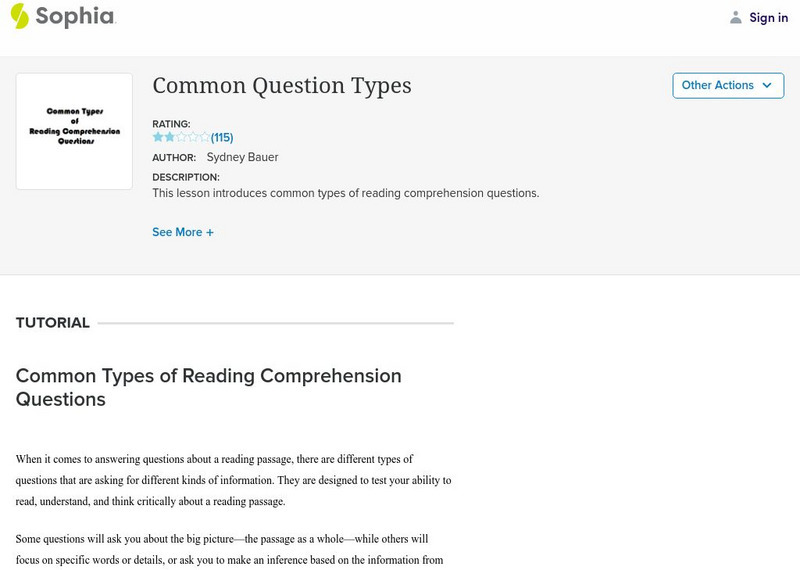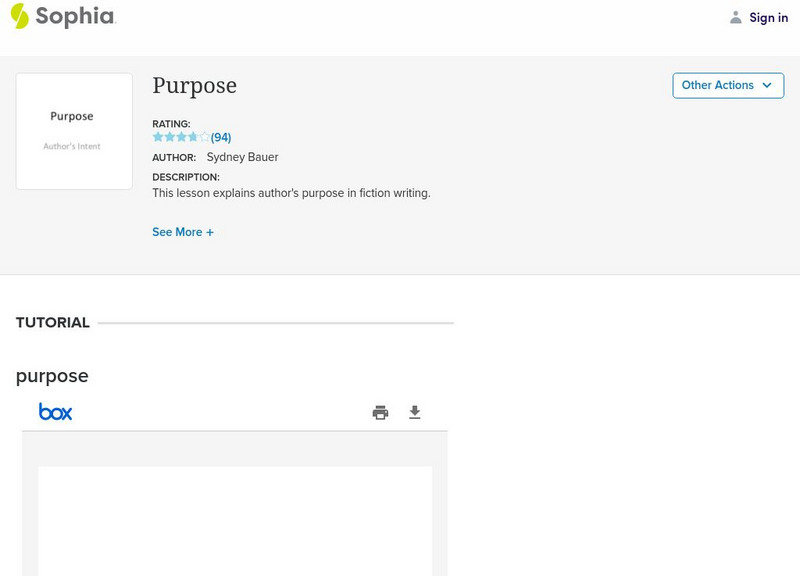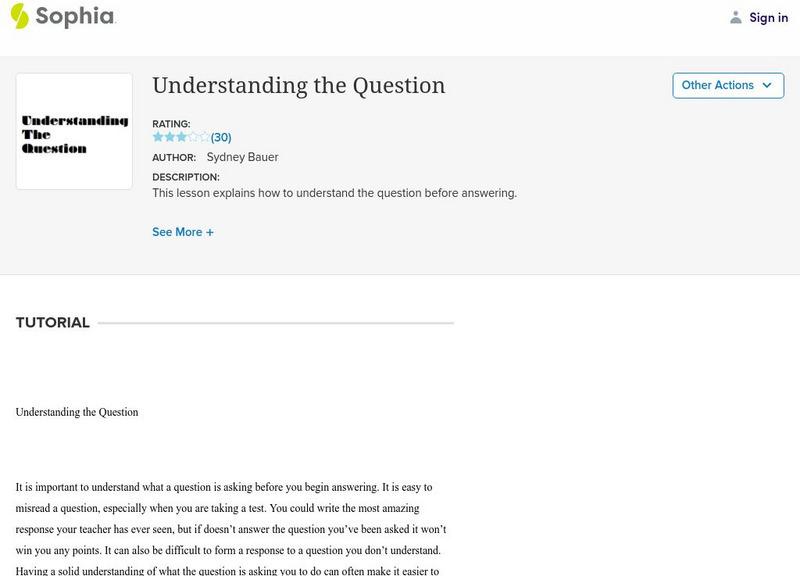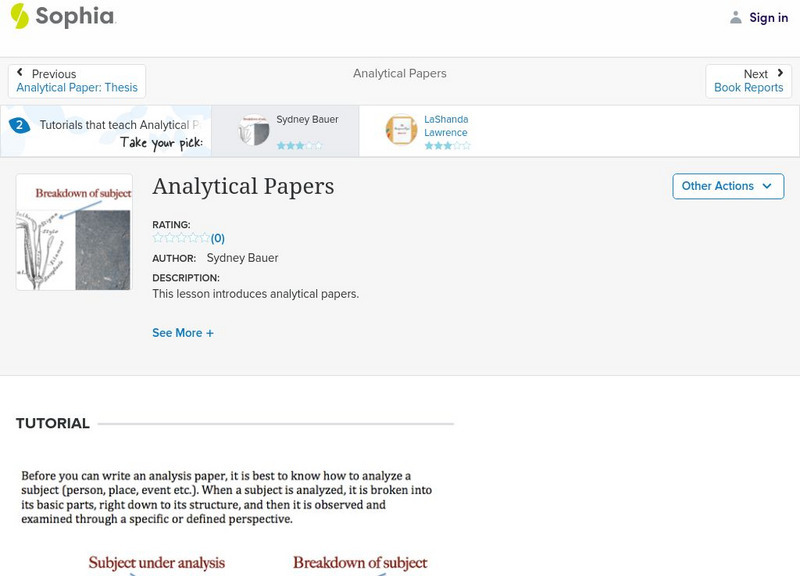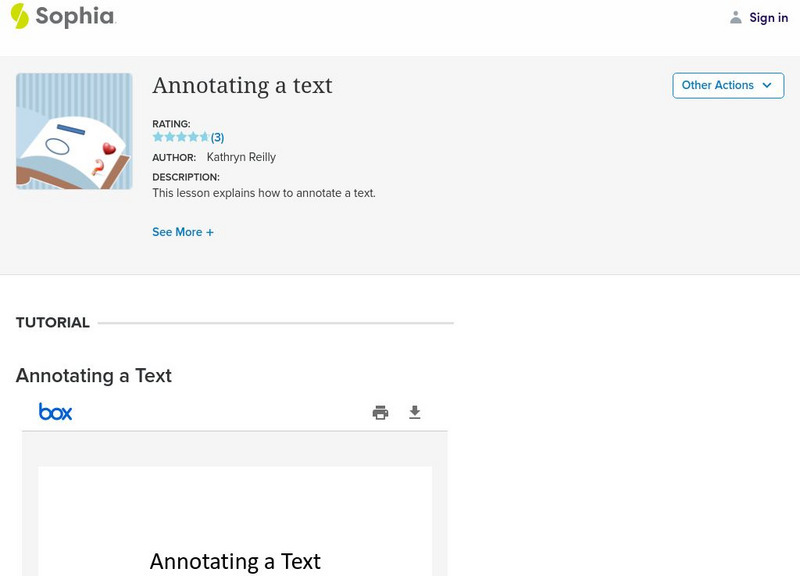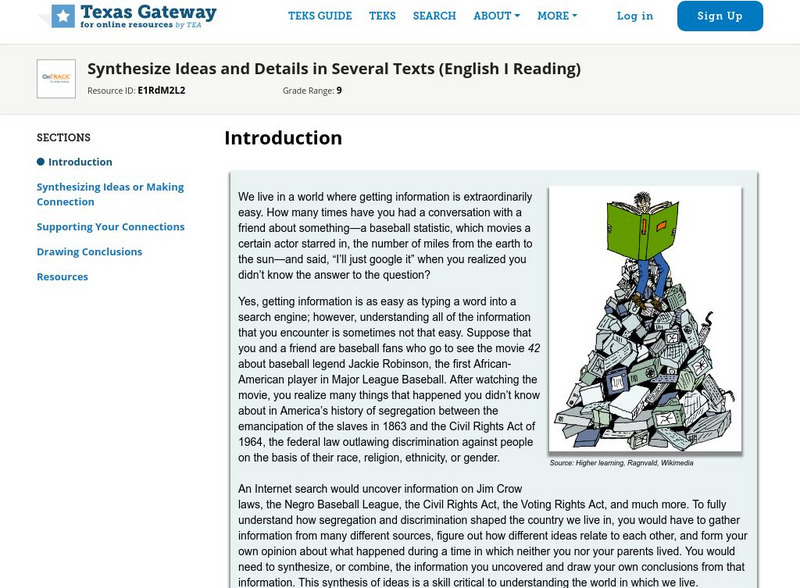National Endowment for the Humanities
Thirteen Ways of Reading a Modernist Poem
High schoolers analyze modernist poetry and the role of speaker in example poems. Learners study modernist poems from the Romanticism and Victorian periods as well as Wallace Stevens' "Thirteen Ways of Looking at a Blackbird." Using a...
Curated OER
Creating Dramatic Monologues from The Grapes of Wrath
The characters in The Grapes of Wrath come to life through an activity that asks groups to craft a dramatic monologue for a character in John Steinbeck's National Book Award and Pulitzer Prize winning novel. Writers are challenged to...
National Endowment for the Humanities
Charles Baudelaire: Poète Maudit (The Cursed Poet)
After learning the main ideas of the Decadent movement, learners work in small groups to read and translate poems by the French poet Charles Baudelaire using basic etymology skills. They then read the accurate English translations to see...
Curated OER
Acting Like a Bunch of Animals: Fables and Human
The video "The Tales of Aesop" traces for viewers the history of fables and identifies their characteristics. The class then goes to the web site "The Fisherman and the Little Fish" where they examine the classic and a modern version of...
Curated OER
Design a Book Cover
Class members take on the role of graphic designer and craft a cover for a book they are reading. Individuals formulate a proposal outlining the images they will use to not only grab the interest of readers, but hint at the mood and...
Polk Brothers Foundation Center for Urban Education at DePaul University
De Paul University: Center for Urban Education: History Thinker: Analyze Then Summarize [Pdf]
This Center for Urban Education resource provides a downloadable worksheet. Students will read about a historical event and answer scaffolded questions that will help them retell what happened, explain the causes and effects, and then...
Polk Brothers Foundation Center for Urban Education at DePaul University
De Paul University: Center for Urban Education: Comprehensive Questions: Nonfiction [Pdf]
Questions are provided to help students determine the main idea, topic, and fact versus opinion of a nonfiction piece. Students are prompted to write a summary of an informational text.
ReadWriteThink
Read Write Think: Expository Escapade: Detective's Handbook
Working on higher-level thinking skills with your readers is made easier with this lesson. You will have your students connect with and analyze a mystery story at their grade-appropriate level. Lesson plan, printable worksheets, and...
New Zealand Ministry of Education
Nz Ministry of Education: Logging Up Reading Mileage
Students will select and enjoy their own range of contemporary and historical texts, display a knowledge of different genre and their particular content, and identify literary aspects of chosen texts for sustained silent reading. They...
Read Works
Read Works: Passages: Predicting the Future
[Free Registration/Login Required] Students read an informational text about the predictions of a futurist and answer questions on comprehension, text support, main idea, vocabulary, and more. Links to a paired text and paired text...
Sophia Learning
Sophia: Common Question Types
This lesson focuses on the six main types of reading comprehension questions: main idea, purpose, tone, inference, detail, and definition. It explains each type and offers examples in text and in audio formats.
Sophia Learning
Sophia: Purpose
This slideshow lesson focuses on purpose; it defines purpose and lists the two main purposes of all writing: to educate (didactic text meaning to inform and instruct) or to entertain (imaginative text). The purpose could also be art for...
Sophia Learning
Sophia: Understanding the Question
This lesson focuses on how to understand a reading question; it details three main parts: look for content and process words, state the question in your own words, and restate the question as a statement. It explains each and provides...
Sophia Learning
Sophia: Analytical Papers
This lesson focuses on analytical papers; it explains how to analyze a subject and the goal of analytical papers. They must include a defined or specific perspective from which to evaluate, an evaluation, and the breakdown of the...
Sophia Learning
Sophia: Annotating Text
This slideshow focuses on the reading strategy, annotating text. It defines the term and purpose, lists types of annotation, explains what to annotate, and suggests how readers develop their own method.
Polk Brothers Foundation Center for Urban Education at DePaul University
De Paul University: Center for Urban Education: Comprehensive Assessment: Nonfiction [Pdf]
Questions are provided to help students determine the main idea, topic, purpose, and opinion of a piece of nonfiction. Students are prompted to write a summary of the informational text.
Texas Education Agency
Texas Gateway: Synthesize Ideas and Details in Several Texts (English I Reading)
You will learn how to synthesize ideas and details in texts and support the connections with textual evidence.
Texas Education Agency
Texas Gateway: Synthesize Ideas in Informational/expository Text
[Accessible by TX Educators. Free Registration/Login Required] Learn how to synthesize and make logical connections between ideas within a text and across two or three texts representing similar or different genres and support with...
Texas Education Agency
Texas Gateway: Synthesize Ideas in Informational/expository Text
[Accessible by TX Educators. Free Registration/Login Required] Learn how to synthesize and make logical connections between ideas within a text and across two or three texts representing similar or different genres and support with...
Texas Education Agency
Texas Gateway: Summarize Informational/expository Text
[Accessible by TX Educators. Free Registration/Login Required] You will learn how to summarize main ideas, supporting details, and relationships among ideas within expository text.
ReadWriteThink
Read Write Think: Intro to Julius Caesar Using Universal Theme Analysis
In this 4-session lesson, students explore the theme of betrayal from different perspectives in their own lives and in modern scenarios through discussions and activities where they create and talk about comic strip scenarios. They...
Texas Education Agency
Texas Gateway: Analyze Clarity of Objectives of a Procedural Text
[Accessible by TX Educators. Free Registration/Login Required] In this lesson, students will learn how to analyze writing in software, warranty, and consumer manuals or publications.
Texas Education Agency
Texas Gateway: Analyze Thesis, Purpose, Textual Elements in Informational Text
[Accessible by TX Educators. Free Registration/Login Required] This lesson focuses on how to locate the controlling idea or thesis and specific purpose in a text and analyze the roles they play in understanding what you read. You will...
Texas Education Agency
Texas Gateway: Explain the Controlling Idea, Purpose, and Distinguish Details
[Accessible by TX Educators. Free Registration/Login Required] In this lesson, students will learn how to pinpoint the controlling idea, which not only identifies the main idea, but also answers questions about the author's goal or...







![De Paul University: Center for Urban Education: History Thinker: Analyze Then Summarize [Pdf] Unknown Type De Paul University: Center for Urban Education: History Thinker: Analyze Then Summarize [Pdf] Unknown Type](https://d15y2dacu3jp90.cloudfront.net/images/attachment_defaults/resource/large/FPO-knovation.png)


